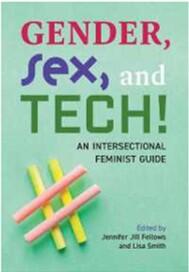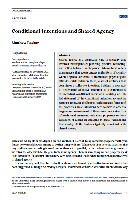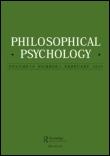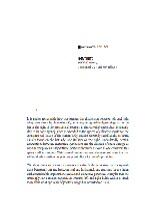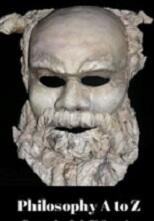Philosophy
Related Works
Content type
Digital Document
Description / Synopsis
Cyborg Goddess (formerly Gender, Sex and Tech: Continuing the Conversation) is a feminist tech studies podcast. From birth control to dating apps, from gender confirmation surgery to the video games we play to relax, technology is all around us. And it is constantly interacting with our bodies, lives, and sense of ourselves in ways we may not even realize, let alone understand. Thankfully, there are a lot of amazing feminist researchers trying to tease out all the technological tangles for us!
Origin Information
Content type
Digital Document
Abstract
In this timely collection, gender, sex, and technology are explored through an intersectional and interdisciplinary lens. Gender, Sex, and Tech! provides insight into the ways that technology affects, and is affected by, cultural perceptions of gender and sex. Through an examination of a range of past and present issues, the text highlights our relationships to technology and illustrates how gendered relations are shaped and transformed through social and technological innovations.
Contributors bring to the fore feminist, decolonizing, and anti-racist methods to examine our everyday uses of technology, from the mundane to the surreal to the playful to the devastating. Original research and scholarship is skillfully grounded in real-world scenarios like revenge pornography, gender bias in artificial intelligence, menstrual tracking, online dating, and the COVID-19 pandemic, inviting students to take a closer look at technological transformations and their impact on gendered lived experience and to consider how the benefits of technology are inequitably shared within society.
Centring Canadian scholars and Canadian perspectives without losing sight of the broader global connection, Gender, Sex, and Tech! is bursting with timely and of-the-moment content, making this collection a must-read for courses focused on gender and technology.
Origin Information
Content type
Digital Document
Abstract
Shared agency is a distinctive kind of sociality that involves interdependent planning, practical reasoning, and action between participants. Philosophical reflection suggests that agents engage in this form of sociality when a special structure of interrelated psychological attitudes exists between them, a set of attitudes that constitutes a collective intention. I defend a new way to understand collective intention as a combination of individual conditional intentions. Revising an initial statement of the conditional intention account in response to several challenges leads to a specification of the properties these intentions need to have in order to be genuine commitments. I then show how a structure of conditional intentions with these properties settles a collection of agents on engaging in social interactions that display all the features typically associated with shared agency.
Origin Information
Content type
Digital Document
Abstract
Important work on alignment systems has been applied to philosophical work on joint action by Tollefsen and Dale. This paper builds from and expands on their work. The first aim of the paper is to spell out how the empirical research on alignment may be integrated into philosophical theories of joint action. The second aim is then to develop a successful characterization of joint action, which spells out the difference between genuine joint action and simpler forms of coordination based on alignment. I begin by introducing the empirical research and two definitions of joint action. I then argue that instead of using this research in conjunction with Searle’s account of collective intentionality, as Tollefsen and Dale suggest, we would be better served by applying this research to Gilbert’s account of plural subjects. In the final sections I distinguish between alignment, coordination, and joint action, clarify the roles of joint commitment and sub-personal alignment in joint action, and argue that these concepts are both consistent and mutually supportive. Combining these two research programs gives us an account of joint action that does justice to both the empirical and philosophical research.
Origin Information
Content type
Digital Document
Abstract
This dissertation gives a philosophical account of acting together with others in the sense of collaboration or partnership. One part of that project is empirical. I report and elaborate on experimental research conducted on our everyday notion of acting together in order to better understand what it is. Another part, which offers a philosophical theory of how we do it, defends the “higher-order interdependence view” of collective intention. I argue that, compared to other kinds of existing views, this theory provides the best explanation of the results of the empirical research.
Origin Information
Content type
Digital Document
Abstract
Since the publication of his last book-length political polemic, 'Hatred of Democracy' (2005), the work of Jacques Rancière has generally focused on developing the conceptual and historical features of his account of aesthetics. With the recent publication of his 2009 debate with Axel Honneth, 'Recognition or Disagreement?' (2016), we have good reason to return to his political thought as it is outlined in 'Disagreement: Politics and Philosophy' (1995) and related texts such as his “Ten The ses on Politics” (1998). Programmatically speaking, Rancière conceives of politics as a practice of dissensus enacted in the name of equality. But in examining the debate between Rancière and Honneth, Jean-Philippe Deranty and Katia Genel have recently sought to reframe Rancière’s account of dissensus in the terms of Honneth’s theory of recognition. Drawing on the subtitle of Disagreement, it is necessary to critique Deranty and Genel both at the level of politics and how this politics implicates philosophy. Elsewhere, I have already indicated how reframing dissensus as a form of the politics of recognition blunts the radicality of Rancière’s methodological commitments. I will not revisit these claims here. Instead, I would like to dispel the assumption that makes this “recognition” reading—as one variant of a generally liberal reading of Rancière—possible. On this assump tion, Rancière holds that dissensual speech is political action. As Deranty writes, “politics in Disagreement is a battle of justifications, mainly a battle about what counts as justification and who is entitled to proffer and expect justifications.” But Rancière’s work isn’t about how to distribute social goods and allocate duties and entitlements to such a degree that we will willingly accept inequalities in our societies. So I will argue, by contrast, that for Rancière speech functions as a me tonymy for a broader praxis of egalitarian, dissensual politics. More specifically, I will contend that Rancière’s egalitarian politics entails two forms of praxis: the symbolization of equality through dissensus and the subversion or elimination of relationships of command, coercion, or force implemented by regimes of policing.
Origin Information
Content type
Digital Document
Abstract
I argue that God's providential arrangement of pleasure and pain, according to Locke, gives us insight into the ends that God has set for us. And insight into these ends ultimately gives us insight into the content of the natural law. Others have convincingly argued that the moral theory of Locke the hedonist and Locke the natural lawyer represent a coherent whole. The distinctive contribution that I make in this paper is to describe the indicative role that pleasure and pain play in the promulgation of the duties of the natural law.
Origin Information
Content type
Digital Document
Abstract
The aim of this dissertation is simple: to defend the epistemic concept of objectivity as one that has done and continues to do good ethical and epistemic work for some communities. Because of this good work, I argue, in contrast to philosophers like Richard Rorty and Lorraine Code, that objectivity should not be removed from epistemic discourse—it is a valuable ideal to have. Relying on work from Lorraine Daston and Peter Galison, I will identify objectivity as a concept with a layered and changing history. There are multiple different conceptions of the concept of objectivity currently identified, and more new conceptions being suggested. So, when I claim that objectivity is a valuable ideal to hold, what I mean is that specific conceptions of the concept of objectivity have had ethical and epistemic virtues in their times and places, and there are current suggested conceptions of objectivity that also seem to have ethical and/or epistemic virtues. These virtues are a result of the effect that the role of objectivity as an ideal has on epistemic subjects who adopt it. I will defend objectivity as an ideal, not as an attainable epistemic perspective. I argue that all conceptions of objectivity share a structure that unifies them under the concept of objectivity. All conceptions of objectivity aim at overcoming something identified as problematically subjective (What this thing is will vary in given times and places). This recognition of the relationship between objectivity and subjectivity allows me to give an analysis of how different conceptions of objectivity yield different conceptions of the epistemic subject. Relying on work done by Ian Hacking, I will argue that the ideal of objectivity serves as a mechanism for making up knowers. Self-reflection and self-policing are at the heart of this method by which categories of knowers are created. Using the examples of the U.S. suffrage movement and Marine-Protected Areas, I will demonstrate that the ideal of objectivity obligates self-reflective persons which has been and continues to be both ethically and epistemically beneficial.
Origin Information
Content type
Audio
Description / Synopsis
An audio recording of a lecture by Michael Picard presented before the Gesellschaft für Philosophische Praxis, upon the invitation of Dr. Gerd Achenbach, founder and director of GPP (August 16, 2019). Delivered in German, it was entitled Bewusstsein und Realität: die Frage des Idealismus in der frühen indischen Philosophie (Consciousness and Reality: the Question of Idealism in the early Indian Philosophy). There were about 40 people in attendance, mostly from the circle of Dr. Achenbach. I owe thanks to Dr. Achenbach and his industrious assistant, Laura V. Adrian, who spent the three days prior to the talk translating my lecture and preparing me to deliver it in German.
Origin Information
Content type
Digital Document
Abstract
A collection of essays and other texts of popular philosophy written by best-selling author, Michael Picard, MSc PhD, the MIT-trained philosopher who has facilitated hundreds of Cafe Philosophy dialogues with the public, for which the entries in this accidental lexicon were composed. Intended to stimulate readers' thoughts prior to public participatory philosophy sessions, Picard's writing invites the reader on a tour de force of the philosophical dimensions of contemporary life.
This anti-dictionary explodes the meanings of philosophically-intriguing concepts as it defines and un-defines them. Written by MIT-trained philosopher and author of best-selling This is not a Book (2007), this unique alphabetical collection of provocative essays and other texts tease and treat the reader to fresh and foreign perspectives on dozens of philosophy topics of interest to thinking public and critical seekers anywhere. At times playful or profound, alternately skeptical and reverential, the entries in this philosophical lexicon push paradox and pull for pluralism, spanning the vast range of philosophy, ancient and modern, East and West, social and spiritual, moral and metaphysical, and yet more. This book is for people yearning to explore have fun gaining new perspectives and thinking for themselves, and ready to have their minds ignited by the curious, all-consuming questioning spirit of philosophy. -- From publisher description.
Origin Information


